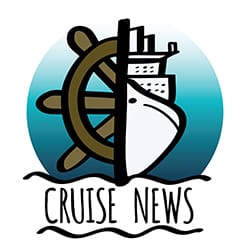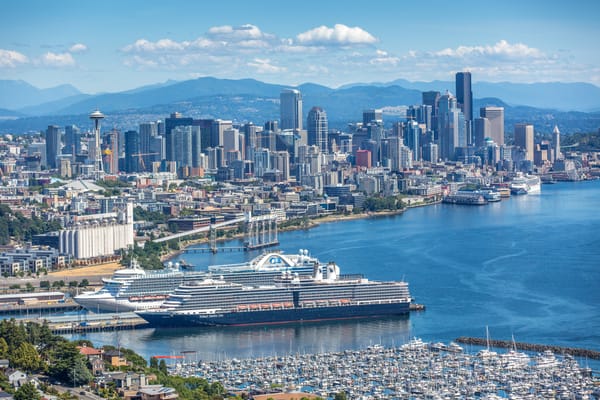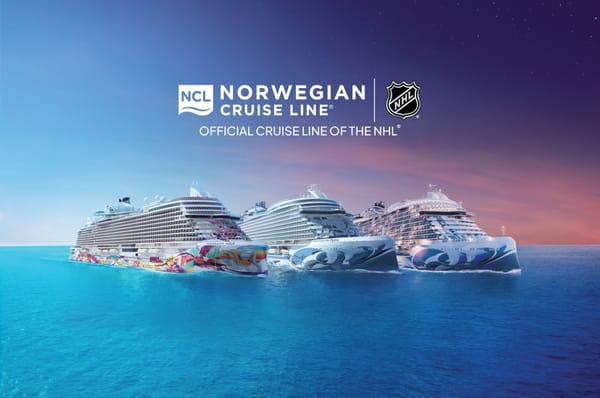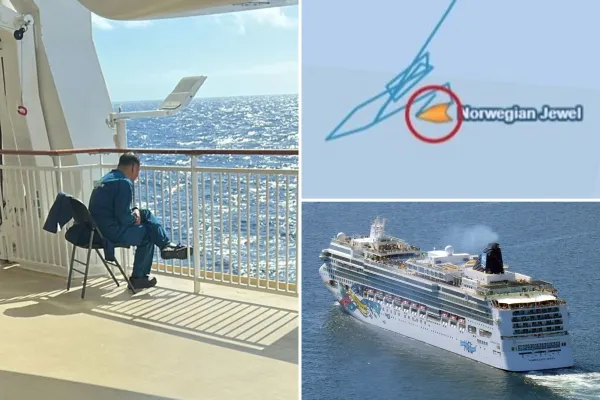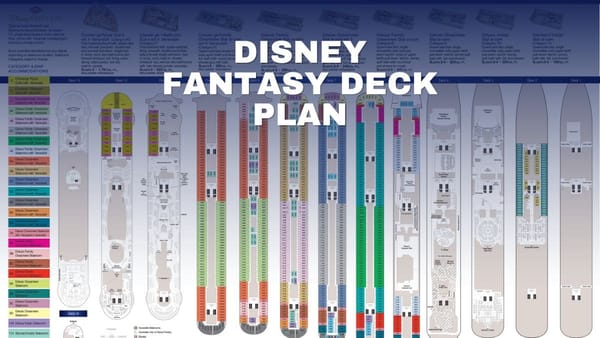Port of Vancouver Completes First LNG Bunkering for Cruise Ship Silver Nova
The Port of Vancouver’s debut LNG bunkering of a cruise ship highlights its expanding role in maritime decarbonization and signals growing momentum for sustainable port operations.
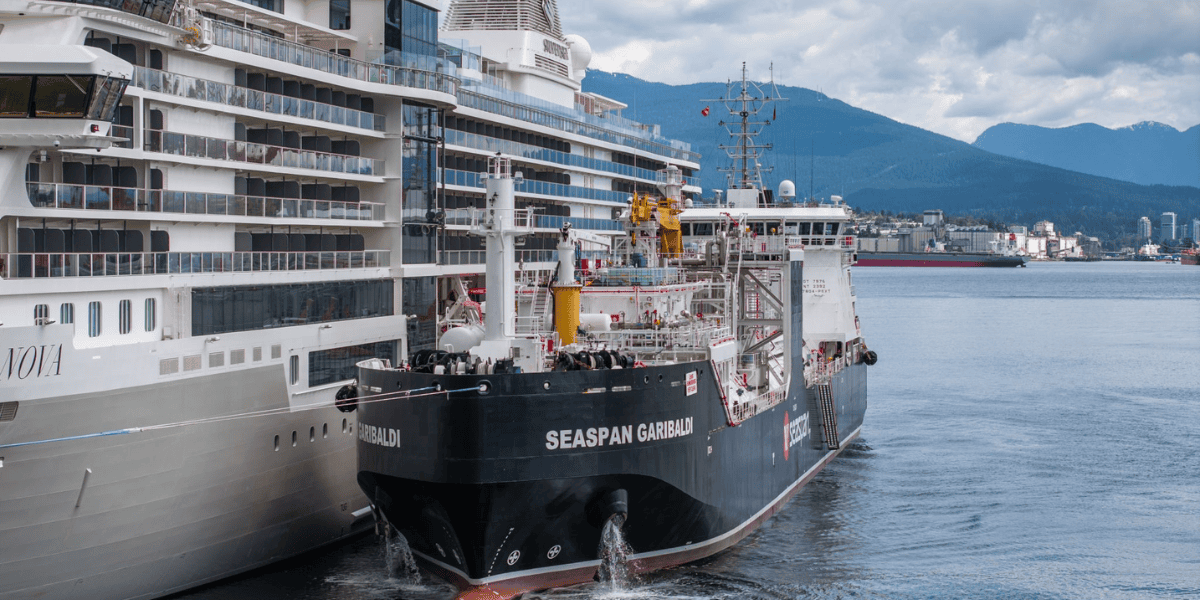
The Port of Vancouver recently achieved a significant milestone in its sustainability journey by conducting its first liquefied natural gas (LNG) bunkering operation for a cruise ship. The vessel, Silversea Cruises’ Silver Nova, received LNG fuel from Seaspan Energy’s bunker vessel, Seaspan Garibaldi, as it prepared to embark on an Alaska-bound voyage. This development underscores Vancouver Fraser Port Authority’s commitment to reducing emissions and supporting the maritime industry’s transition toward cleaner energy solutions.
LNG Bunkering: A Major Step in Decarbonizing Maritime Operations
This marked the first use of LNG, an alternative marine fuel, for bunkering a cruise ship at the Port of Vancouver. LNG is one of the most widely adopted alternative fuels, and its availability represents a crucial step toward decarbonizing the maritime industry (a sector heavily reliant on traditional heavy fuel oil and marine diesel).
Captain Shri Madiwal, Vice President of Operations and Supply Chain at the Vancouver Fraser Port Authority, highlighted the port’s role in this energy transition, explaining, “We all have a crucial role to play in enabling the energy transition. As a port authority, our focus is on putting the infrastructure and processes in place to ensure visiting ships can move beyond traditional marine fuels and embrace alternative fuels like LNG.”
LNG’s lower carbon emissions, compared to conventional marine fuels, make it an attractive option for meeting International Maritime Organization (IMO) decarbonization targets. Its adoption also aligns with cruise lines’ broader goals, including reducing overall emissions and achieving net zero by 2050.
Seaspan Energy at the Forefront of LNG Adoption
Seaspan Energy, the first accredited supplier of LNG bunkering services for ships calling at the Port of Vancouver, played a key role in this milestone. The company operates three ship-to-ship LNG bunker vessels along North America’s West Coast, including the Seaspan Garibaldi, which performed the bunkering operation for the Silver Nova.
According to Seaspan Energy President Harly Penner, “Providing dependable LNG bunkering services from Vancouver represents a major step forward. This first LNG bunkering of a cruise ship at the port is a milestone we are excited to share with the Port of Vancouver, as it signals meaningful progress in the industry’s decarbonization efforts.”
In addition to cruise ships, the port has facilitated LNG bunkering operations for a variety of vessels, including container ships, car carriers, and bulk cargo vessels. These operations follow rigorous safety standards and site-specific assessments to ensure compliance with international best practices.
Comprehensive Sustainability Efforts at the Port of Vancouver
The LNG bunkering milestone is just one part of Vancouver’s broader strategy to advance sustainability and protect the local environment. Notably, the port has pioneered the adoption of shore power infrastructure, enabling ships to connect to British Columbia’s hydro-powered electrical grid while docked. This reduces the need for auxiliary engines and significantly cuts greenhouse gas emissions.
Over 80 percent of cruise ship calls to the port in 2024 are expected to utilize this shore power capability. Additionally, the port has implemented the ECHO Program, which encourages reduced ship speeds to protect endangered whale populations within the Salish Sea. These initiatives demonstrate the Port of Vancouver’s commitment to fostering sustainable marine operations.
Economic and Environmental Impacts
The adoption of LNG fuel and other clean energy technologies at the Port of Vancouver also has economic implications for the region. Each cruise ship call generates an average of CAD 3 million for the local economy, supporting various businesses and employment opportunities. With 301 cruise ship calls already scheduled for 2025, the port’s efforts to ensure environmental sustainability remain closely tied to maintaining its economic vibrancy.
By positioning itself as a leader in alternative fuel infrastructure, Vancouver sets an example for other major ports that aim to balance environmental stewardship with economic growth. Early planning is already underway to explore the safe implementation of additional alternative fuels, such as ammonia and methanol, further advancing decarbonization initiatives.
As maritime industries increasingly shift toward cleaner fuel options, Vancouver’s adoption of LNG not only supports current sustainability efforts but also establishes a foundation for future innovation and long-term environmental goals.
Frequently Asked Questions (FAQs)
What is LNG bunkering, and why is it important?
LNG bunkering is the process of refueling ships with liquefied natural gas, a cleaner-burning alternative to traditional marine fuels. It plays a key role in reducing carbon emissions and meeting global decarbonization targets within the shipping industry.
Which cruise ship received LNG bunkering at the Port of Vancouver?
Silversea Cruises’ Silver Nova was the first cruise ship to undergo LNG bunkering at the Port of Vancouver. The vessel is designed to operate with lower emissions, aligning with the industry’s sustainability goals.
What other sustainability efforts are underway at the Port of Vancouver?
The port has implemented shore power infrastructure and the ECHO Program to reduce emissions and protect local marine ecosystems. Additionally, the port is exploring alternative fuels such as ammonia and methanol to support long-term decarbonization.
How does LNG adoption impact the local economy?
LNG bunkering supports the future of sustainable cruise tourism, a vital contributor to Vancouver’s economy. Each cruise ship call generates approximately CAD 3 million in revenue, benefiting local businesses and workers.
Through initiatives like LNG bunkering and shore power, the Port of Vancouver is solidifying its position as a leader in sustainable maritime practices while preparing for ongoing advancements in alternative fuel technology.
